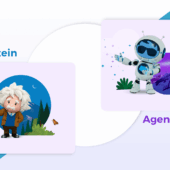In today’s fast-paced digital world, customer service is more important than ever. Companies are expected to provide seamless, personalized, and quick support to keep customers satisfied and loyal. Salesforce Service Cloud is a powerful platform designed to help organizations meet these demands and elevate their customer service offerings.
Whether you’re new to Service Cloud or looking to maximize its potential, this guide will walk you through its key features, benefits, and best practices for success.
What is Salesforce Service Cloud?
Salesforce Service Cloud is a cloud-based customer service platform that enables businesses to deliver exceptional customer service through multiple channels. As part of the Salesforce ecosystem, it integrates seamlessly with other Salesforce products, allowing companies to manage customer interactions, improve support team efficiency, and provide personalized experiences at scale.
Service Cloud enables businesses to manage cases, track customer interactions, automate workflows, and gain valuable insights using built-in analytics. It’s a comprehensive solution for customer service teams looking to provide fast, efficient, and high-quality support.
Key Features of Salesforce Service Cloud
- Case Management: At the heart of Service Cloud is case management. It allows your team to track customer issues, assign cases to the right agents, and provide timely resolutions. Cases can be created through multiple channels, including email, chat, social media, and phone, giving your team a holistic view of customer interactions.
- Omnichannel Support: Service Cloud allows businesses to offer support across multiple channels—such as phone, email, live chat, social media, and even messaging apps like WhatsApp. This ensures that your team can engage with customers on the platforms they prefer, providing a seamless experience.
- Knowledge Base: A comprehensive knowledge base is crucial for empowering customers to find answers to their questions on their own. Service Cloud includes a self-service portal where customers can search for FAQs, articles, and troubleshooting guides, reducing the number of repetitive inquiries your agents need to handle.
- Automation with Workflow Rules & Process Builder: Service Cloud includes robust automation tools such as workflow rules and Process Builder to help streamline your operations. You can automatically assign cases, escalate issues, and send notifications based on specific triggers, allowing your team to focus on more complex tasks.
- Artificial Intelligence with Einstein: Salesforce’s Einstein AI features offer advanced automation, predictive analytics, and chatbot capabilities to enhance your customer service. With Einstein, Service Cloud can analyze customer data, predict customer needs, suggest solutions to agents, and even provide automated responses through chatbots.
- Reports and Dashboards: Built-in reporting and dashboards give you real-time insights into key metrics like case volume, agent performance, customer satisfaction, and more. This data is crucial for tracking performance, identifying bottlenecks, and improving overall service delivery.
- Service Console: The Service Console is a unified interface that allows customer service agents to view and manage all customer interactions from one place. It provides a 360-degree view of each customer, including their history, current cases, and any ongoing support issues.
- Community Cloud Integration: Salesforce Community Cloud allows businesses to create branded online communities where customers can engage with one another, ask questions, and share knowledge. This is a great way to create a self-service option for your customers and foster peer-to-peer support.
Benefits of Salesforce Service Cloud
- Improved Customer Satisfaction: By providing multiple support channels, quick issue resolution, and personalized interactions, Service Cloud helps improve overall customer satisfaction. Happy customers are more likely to remain loyal and refer your business to others.
- Increased Efficiency: Automation tools and the service console improve agent productivity by reducing manual tasks, case handling times, and administrative overhead. This allows agents to focus on more valuable work like solving complex customer issues.
- Personalized Customer Experiences: Salesforce’s integration with customer data enables businesses to deliver highly personalized support. By having a 360-degree view of each customer, agents can provide tailored solutions based on their history and preferences.
- Scalability: Service Cloud grows with your business. Whether you’re a small startup or a large enterprise, you can scale your customer service operations without compromising on quality or efficiency. The platform’s flexibility makes it adaptable to businesses of all sizes and industries.
- Increased Agent Productivity: The Service Cloud platform enables agents to handle cases more efficiently with tools like knowledge management, AI-powered case suggestions, and automation. As a result, agents are able to resolve issues faster and handle more cases in a shorter time frame.
- Real-Time Analytics: Service Cloud’s real-time analytics and reporting give businesses valuable insights into performance metrics. This enables managers to track agent performance, identify trends, and make data-driven decisions to continuously improve customer service operations.
Best Practices for Using Salesforce Service Cloud
- Leverage Automation: Automate repetitive tasks such as case assignment, escalation, and email notifications. This ensures faster response times, reduces human error, and allows your team to focus on more complex tasks.
- Create a Comprehensive Knowledge Base: Ensure your knowledge base is well-organized and up-to-date with relevant articles, FAQs, and tutorials. Empower your customers to find answers quickly and easily, reducing the number of cases created and improving overall satisfaction.
- Provide Omnichannel Support: Offer customers the option to reach out to your support team via their preferred communication channel. Service Cloud’s omnichannel capabilities help ensure a consistent and seamless experience, regardless of the platform customers use.
- Utilize AI and Chatbots: Implement Salesforce Einstein’s AI-powered features to automate responses and provide personalized suggestions. AI-powered chatbots can also provide instant support to customers, handling routine queries and freeing up agents to focus on more complicated issues.
- Track Key Metrics: Use Service Cloud’s reporting and analytics to track key customer service metrics such as case resolution times, agent performance, and customer satisfaction scores. This data will help you identify areas for improvement and make informed decisions to optimize your service operations.
- Train Your Team Regularly: Ensure your customer service team is well-trained on the latest features and best practices within Service Cloud. The more proficient your agents are with the platform, the more efficient and effective they will be at resolving customer issues.
- Integrate with Other Salesforce Products: Take full advantage of the Salesforce ecosystem by integrating Service Cloud with other Salesforce tools like Sales Cloud, Marketing Cloud, and Commerce Cloud. This will give you a unified view of your customer and allow you to deliver a consistent experience across all touchpoints.
Conclusion
Salesforce Service Cloud is an essential platform for businesses looking to elevate their customer service operations. With its robust features, advanced AI capabilities, and seamless integration within the Salesforce ecosystem, Service Cloud provides businesses with the tools they need to improve customer satisfaction, increase efficiency, and scale operations.
By following best practices and leveraging the power of Service Cloud, your organization can provide exceptional service that keeps customers happy, loyal, and engaged for the long haul.
Are you ready to transform your customer service with Salesforce Service Cloud? Start exploring its features today and watch your business take customer experience to the next level.
Blog by:-
Sanjay Kumawat
(Solution Expert)
Virtuowhiz Consulting Pvt. Ltd.








